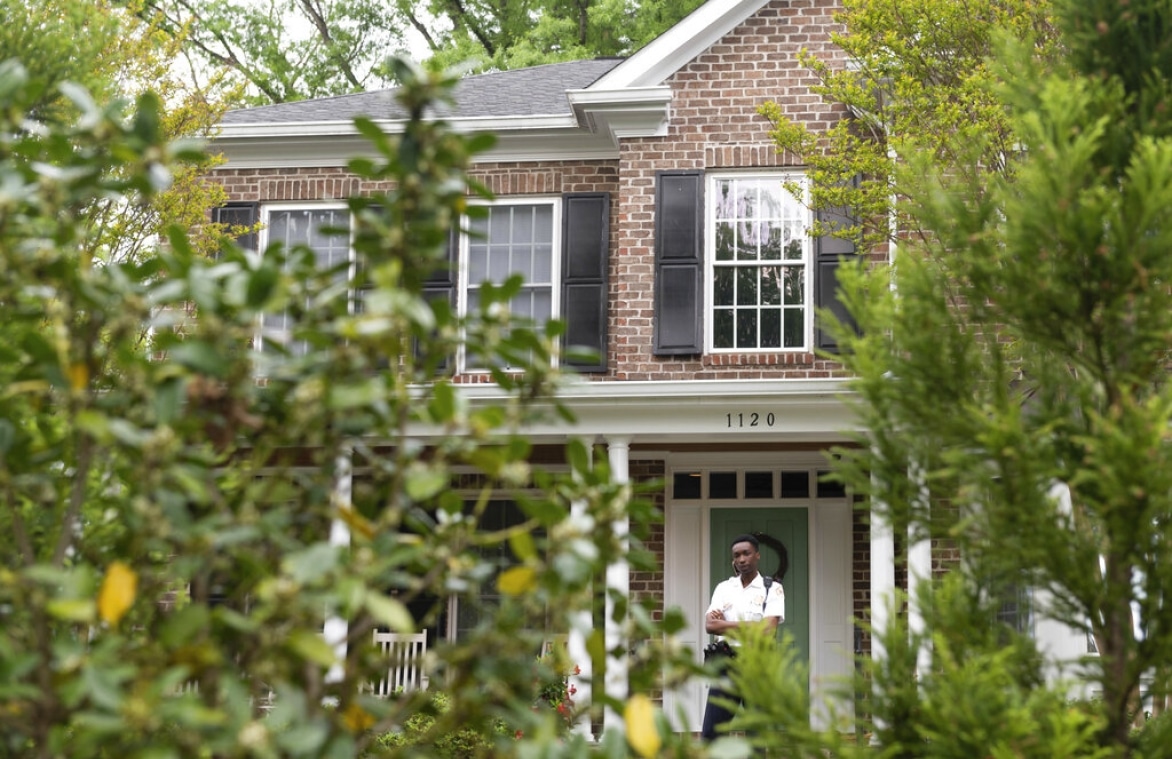Whether the current protests violate the law is one thing; whether the protesters should be arrested is another. Prosecutors have wide discretion over what crimes that choose to prosecute. To win a conviction, they would have to prove an intent to influence.
“I think we are in a gray area, because it’s not clear what the protesters’ purpose is,” El-Haj says. “Is it really because they think they are going to pressure Brett Kavanaugh to change his mind? Or is it more general outrage at the courts?”
Protesters outside Kavanaugh’s home have waved placards with messages such as “Don’t like me at your house? Get out of my uterus.” At Alito’s home in Alexandria, Va., about 100 people marched and chanted “Abort the Court!” But rumors that Alito was forced to vacate to an undisclosed location for his safety were
unsubstantiated.
WASHINGTON, D.C. – Noisy protests outside the homes of conservative Supreme Court justices, in response to the leaked draft opinion indicating that the court is poised to overturn Roe v. Wade, raise at least two good questions. Are the protests a smart strategy? And are they legal?

www.mtsu.edu
As of this writing, local authorities have shown restraint. In Montgomery County, Md., where Kavanaugh and Chief Justice John Roberts live, police are telling protesters that, if they want to avoid arrest, they need to keep moving and avoid major disruptions.
As long as the protests remain peaceful and reasonably small, “it’s not in anyone’s interest to have people put in handcuffs and dragged away,” says
Susan Gluck Mezey, a constitutional law expert at Loyola University Chicago.
